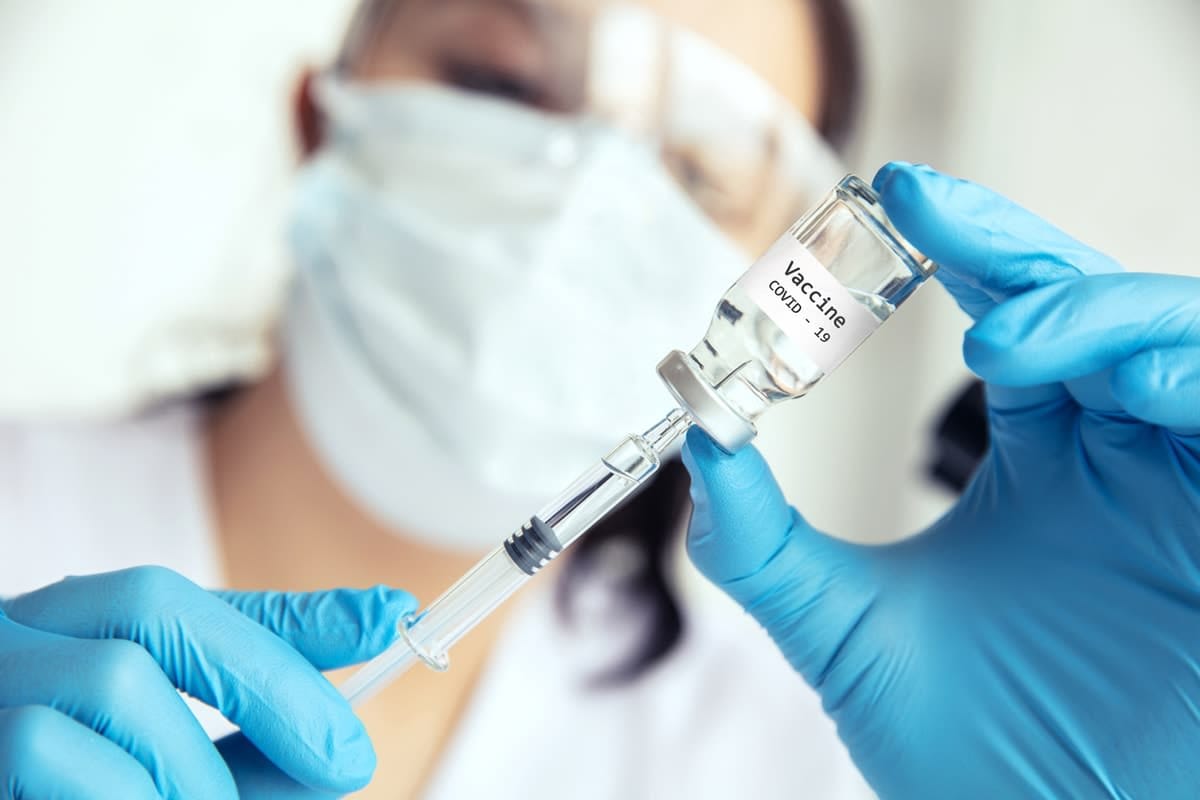
Under Australia’s original COVID-19 vaccination rollout plan, community pharmacies were meant to be involved in administering vaccines from phase 2a.
Phase 2a includes all adults over 50, among other priority groups, and began at the beginning of May via mass vaccination hubs, followed by GP clinics.
We’re now technically into phase 2b, with certain age groups under 50 newly eligible, depending on the state or territory.
Pharmacists have been found to be capable, willing and ready to help with Australia’s vaccine rollout. But with the exception of Queensland, where 49 regional and remote community pharmacies are now allowed to deliver the vaccine, we have yet to see the government engage pharmacists in a meaningful way.
A bit of background
On 5 February this year, the federal government called for expressions of interest from community pharmacies to be involved with the vaccine rollout. Approximately 3900 of the 5700 pharmacies nationwide were deemed “suitable”.
The Pharmacy Guild of Australia has estimated allowing these pharmacies to administer the vaccine would accelerate Australia’s vaccination rollout by three months. Their modelling also suggested involving the pharmacy sector would save the government A$77 million.
In April, National Cabinet agreed pharmacies could be engaged in the states’ and territories’ rollout plans in locations where there are no or limited other places for people to be vaccinated.
In May, the federal Minister for Health, Greg Hunt, announced up to 56 community pharmacies in regional Queensland would be approved to administer COVID vaccines, following a proposal from the Queensland government.
We’ve seen that begin last week, and it’s great news for those Queensland communities with no medical practice. It’s expected jurisdictions with large hinterlands including New South Wales and Western Australia will follow soon.
Read more: Putting it into perspective: Here's how to improve the vaccination uptake
But we haven’t seen engagement of pharmacies more broadly, beyond filling the gaps that exist outside city centres (and even that we’ve only seen in Queensland so far). At the Australian Pharmacy Professional Conference in May, Hunt stated the pharmacy sector would need to wait until “the latter part of the year” to be involved.
In personal communications with the department of health, inadequate supplies of vaccines at the state and territory level has been cited as the reason for delayed implementation of pharmacy-based vaccination, even in a “filling the gap” role.
This doesn’t help those Australians living in towns or in outer suburbs of the cities where there’s an approved pharmacy but no GP. Nor does it help people whose GPs don’t provide COVID-19 vaccinations, or who are elderly or frail and unable to travel to mass vaccination hubs.
Pharmacists are well-placed to deliver vaccines
Pharmacists have been a fundamental part of Australia’s vaccination workforce since 2014. Depending on the state, pharmacists can administer influenza, whooping cough, measles, mumps, rubella, meningococcal, diphtheria and COVID-19 vaccines.
Approval for pharmacies to offer vaccination requires training to the same skill level as other vaccinators (such as nurses and doctors), appropriate private space within the pharmacy, and the capacity to upload patients’ vaccination records to the Australian Immunisation Register.
Once pharmacies get the green light for greater involvement, the lead time for the profession to come on board will be short, as these factors are largely already in place.
With the expectation of assisting with the COVID-19 vaccination program, we’ve seen an upsurge in pharmacists completing vaccination training this year.

Storage changes will make it easier
The Therapeutic Goods Administration recently approved changes to the storage requirements of the Pfizer-BioNTech vaccine.
This COVID vaccine belongs to a family of a new technology called mRNA vaccines, and initially required storage at around -60℃. During development of the mRNA vaccines, scientists didn’t know whether the vaccines would be stable in a refrigerator, but testing has since demonstrated they can be stored safely for one month at a normal fridge temperature of 2-8℃.
Read more: Shot in the arm: All you need to know about the COVID-19 vaccines, and their rollout
The capability to store vaccine in unopened vials in normal fridges, as opposed to ultra-cold freezers, will allow greater flexibility in vaccine delivery. This will be particularly useful for remote communities where deliveries can be complicated.
The storage change also enables administration of COVID-19 mRNA vaccines in community pharmacies, which all have fridges with temperature monitors.
Addressing vaccine hesitancy
With Australia starting COVID-19 vaccination later than many places and slipping further behind comparable countries, all available resources should be brought to bear in assisting the population to accept and access vaccination.
We can look overseas to see government programs that engage community pharmacy in COVID-19 vaccination.
Read more: The waiting game: Why are so many people hesitant about COVID-19 vaccines?
In the United States, for example, a collaboration between national and state governments and 40,000 pharmacies makes it easier for people to access COVID-19 vaccination locally, improving vaccine uptake, and decreasing the logistical and operational burden on health departments.
Also in the US, the Pharmacy Partnership for Long-Term Care Program involves community pharmacies vaccinating residents and staff on-site at more than 62,000 residential aged care facilities.

While issues of global supply and vaccine storage have affected distribution, public concern about efficacy and side-effects have contributed to vaccine hesitancy and affected uptake.
Public health messaging is important, but these are complex and personal matters. Many people have questions, such as “Which vaccine is best for me, taking into account my medical situation?”, and “What are the potential side effects?”. Pharmacists are well-placed to answer these sorts of questions.
Read more: Four ways Australia's COVID vaccine rollout has been bungled

John Jackson is President of the Victorian Branch of the Pharmaceutical Society of Australia, and has been negotiating within the profession and with the Victorian government on how and when pharmacists may be engaged in COVID-19 vaccination.
Harry Al-Wassiti received funding from Monash University and the Medical Research Future Fund (MRFF) to develop mRNA COVID-19 vaccines. He collaborates, consults for, and receives funding from pharmaceutical industry collaborators and biotechnology and government bodies involved in the technological development of vaccines. He has no affiliation with pharmacy councils or associations.
This story originally appeared on The Conversation.





